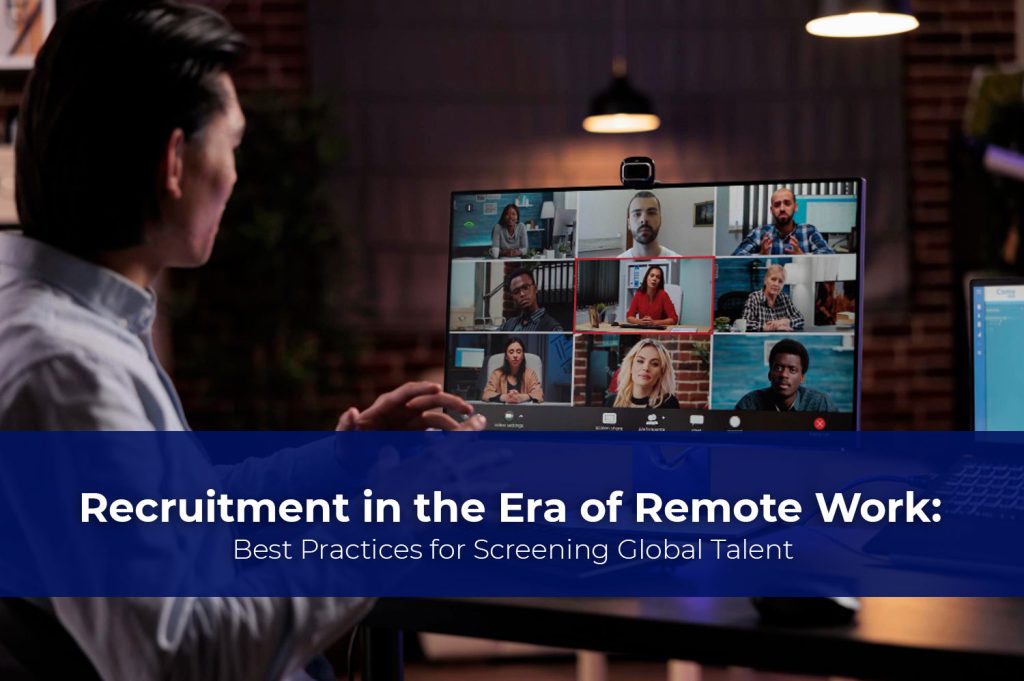An In-Depth Look at the RPO Industry

“Every industrial revolution brings along a learning revolution.” – Alexander De Croo, The Prime Minister of Belgium
The Recruitment Process Outsourcing (RPO) industry has taken off at breakneck speeds over the past few years, ever-evolving to meet market demand. Acquiring top talent can become expensive if left to in-house services. With the significant savings brought by the RPO agencies, companies are now depending more on RPO services.
With the amount of new RPO providers emerging, other firms have had to look for new ways to make themselves stand out from their competition. While some recruitment outsourcing companies choose to make promises, others have decided to specialize to validate their higher price points.
Data analytics and artificial intelligence are now major trends emerging in the global RPO market. Certain analytical tools are being used to extract information for HR executives to manage the recruitment of top talent efficiently.
To further gain an understanding of the direction in which the RPO Industry is headed, let’s take a look at how the system worked in the past, the latest trends, and what it is evolving into.
Table of Contents
ToggleA Short History of the RPO Industry Growth
During the economic collapse of 2008, recruitment budgets tightened, giving Recruitment Process Outsourcing solutions the space to start growing like never before. The growing budget pressure along with the improvement of Applicant Tracking System (ATS) technology and the growth of online recruitment tools, provided the perfect grounds for RPO services to expand.
Early RPO providers had to tackle the difficult task of navigating the blurry lines between agency recruiting, staff augmentation, and project staffing. The new strategies brought by emerging RPOs grew steadily. Financial investment in the RPO industry also grew during the 2008 economic collapse. Thus began the race of value, quality, and specialization.
As the industry grew, the customers got wiser, competition greater, and financial investors more eager for their returns. RPO leaders drove top-line revenue competing heavily on price, leading to a huge drop in price around the year 2011. After the sale of a few big RPO providers and changes in leadership at other top houses, the RPO market hit a relatively quiet period between 2013 and 2016, according to Recruiting Daily.
And now, here we are, with better technology and great improvements in the RPO industry. Relationships between RPO service providers and clients have also grown to facilitate better recruitment. As we move into the next chapter, if the contract lengths keep dropping, it would be troubling that technology costs keep rising.
The RPO industry is expected to grow at a compounded rate between 2020 and 2027

Market Trends
Several employers have increasingly begun opting for RPO services aiming to reduce the cost of recruitment. This factor is projected to drive market growth. In recent times the surge in the number of graduates and postgraduates has bolstered the need for such services.
Take a look at the major takeaways from recent years to understand what the market for the RPO industry will look like in the future:
- The global RPO market size was at one point valued at USD 5.84 billion in 2019 according to a research report by Grand View Research. The same report indicated that the market is expected to grow at a compounded annual rate (CAGR) of 18.5% between the periods of 2020 and 2027.
- To reduce cost per hire, many companies are now approaching RPO firms. When a business expands, there arises a need to acquire more talent. To have a constant supply of business value while also cutting operational costs, RPO is required.
- According to the Grand View Research report, the on-demand segment captured a revenue share of around 25% in 2019. This essentially means that businesses that fall under the SMEs (Small, medium enterprises) are recognizing the boon of RPO agencies and their services. Considering the budget constraints that businesses of this level are often faced with, it goes to show that RPO agencies are able to cater to a wide clientele at reasonable price points.
“If everybody else seems to be doing it one way, there might be more opportunity the other way.” – Andrew Scheuermann, CEO of Arch Systems
- The off-site RPO service segment has also shown interesting developments in recent times. In 2019 it held the largest revenue share of the market of over 65% according to Grand View Research. Off-site recruitment process outsourcing provides a centralized hiring approach to client hiring for various locations. Also one needs to take into consideration the expertise that RPO agencies have in regards to industry expertise, international labour laws, and so on. This makes them a go-to solution for many multinational companies looking for international recruitment solutions.
- The on-site RPO service segment has also shown strong signs of growth. As per reports, it is expected to witness a strong CAGR of 20.1% over the forecast period between 2020 and 2027. So, by that logic, we are looking at well-rounded growth for the industry and the services therein.

Based on data and trends, the RPO Industry is branching off into more diversified services
Predicted Future of RPO:
After reviewing the past and looking at the emerging trends in the RPO industry, it appears that the evolution of this service is growing into three channels. Let’s see what these channels are and what they mean for the industry:
The first channel is the Agile Recruitment Services (ARS) process. This avenue emerges due to a competitive market as well as budget growth. This method uses shorter contracts between the company and the partnering firm. This channel is rather appealing and is greatly welcomed for its flexibility.
The second channel would be the Better People Outsourcing (BPO) solution. This method relies on technology due to its efficiency. Through this channel, the company will be more invested in the ease and accuracy of the technology used to find the right fit for whatever role the partnering business wants to be filled.
The final channel is the traditional Recruitment Process Outsourcing (RPO). There are still several RPO agencies bringing high value to their clients with minimal investment in advanced technological solutions. They also have a great balance between recruiting talent, the customization of the process, and their employer’s experience.





























